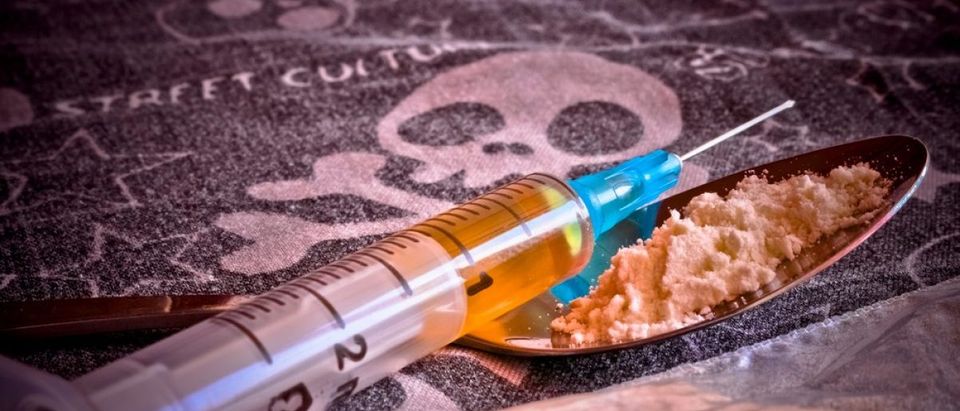Counselors on the front lines of addiction treatment are fearful over the collective will in the U.S. to do what it takes to combat the growing plague of opioid abuse.
“It helps if you can conceptualize addiction as a chronic disease like heart disease or diabetes,” Dr. Carol Smith, associate professor with the Clinical Mental Health Counseling Program at Marshall University, told The Daily Caller News Foundation. “It’s something you really do need to manage and not let your guard down on, because if you do you’re going to get yourself in trouble.”
Licensed professionals gathered on Capitol Hill Tuesday, hosted by the American Counseling Association, to discuss the crucial roles counselors play in combating the opioid epidemic. Counselors discussed the various barriers to treatment they argue are hampering state and federal efforts to help struggling addicts.
“First of all counselors aren’t recognized by medicare and we just got recognized by medicaid in West Virginia but that’s not supposed to take effect until July 1, and massive cuts are expected later in the year,” Smith told TheDCNF. “The reimbursement rates for most private insurers are also insultingly low, so access can be a big issue. Frankly, people have difficulty even finding a counselor, particularly one that specializes in addiction or trauma and some of the people most in need of counseling simply can’t afford it.”
The discussion also covered the nature of opioid and heroin addiction and how it changes brain chemistry in a more pronounced way than other substances. Often times a lack of understanding about opioid addiction within the counseling community can lead to ineffective treatment for addicts.
“There’s a need for more training, specifically in addiction, frankly for everyone in the medical community,” Smith said. “Counselors do not get as much addiction specific training as we ought to have. The difficulty with getting people clean physiologically, is you can get the substance out of their system, but it doesn’t stop the cravings or the longings for the substance. When you release someone from 28 days or even 60 days of really good inpatient treatment and detox, they end up right back in a holistic environment that fostered the use in the first place.”
One of the chief problems currently plaguing recovering addicts is a lack of information about how long cravings last. Many rehabilitation programs only require 30 days. Addiction experts say it takes anywhere from four months to a year for the brain to return to near-normal functioning.
Addiction is hardwiring the brains of addicts for a lifetime of substance abuse, and addiction experts fear continued misconceptions regarding addiction and the time needed to fully recover are undermining efforts to kick the habit, compounding the crisis. One key to understanding the phenomenon and combating it in society is learning how addiction suppresses rational thought.
A condition called Euphoric recall, according to recovering addicts, is always a threat, even if the person is clean for decades. Opioid use floods the brain with dopamine and overtime, a person’s happiest emotions and feelings become inextricably tied to their drug use.
“A colleague of mine described it as, ‘you have a new definition of what pleasure is all about,'” Smith, who formerly served as president of the West Virginia Counseling Association, told TheDCNF. “It’s such an insidious substance, because it makes you feel absolutely fantastic this one time, and then you can never get back there.”
Heroin deaths contributed to the first drop in U.S. life expectancy since 1993 and eclipsed deaths from motor vehicle accidents in 2015. The substance accounts for roughly 63 percent of drug fatalities, which claimed 52,404 lives in the U.S. in 2015, according to the Centers for Disease Control and Prevention.
Medical professionals worry the stigma associated with addiction is still creating barriers to education and treatment. People hesitate labeling addiction a disease, because it initially involves a voluntary choice to take a substance.
“I worry that we don’t have the the collective will to do what we need to do to really address this crisis,” said Smith.
All content created by the Daily Caller News Foundation, an independent and nonpartisan newswire service, is available without charge to any legitimate news publisher that can provide a large audience. All republished articles must include our logo, our reporter’s byline and their DCNF affiliation. For any questions about our guidelines or partnering with us, please contact licensing@dailycallernewsfoundation.org.


